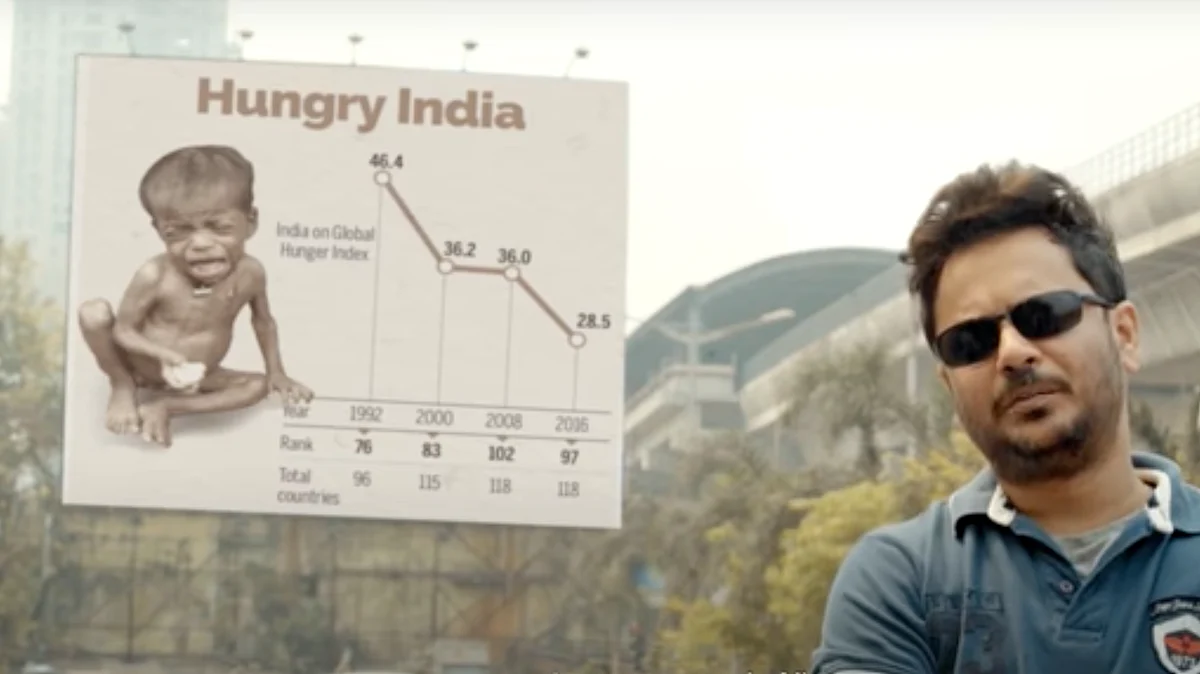Bengal’s ‘song of resistance’ goes viral on social media
The viral video released this week does not ask people to vote for any party or for anything. But it does ask people to oppose hate, bigotry and faux nationalism

Bengal is all set to dive into one of the most important elections in recent history. This election is not only critical from a regional point of view, but from a wider national context. This battle for Bengal is not a battle of political parties, but a battle of ideologies. It would set the grounds for what happens to the political discourse in the country, as GK Gokhale once said, “What Bengal thinks today, India will think tomorrow”.
As electoral waters continue to get muddied in Bengal, a group of eminent Bengali artists has released an emotional anti-hate anthem titled, “Nijeder Maute, Nijeder Gaan” on what Bengal is or at least ought to be. The song released by a group called Citizens United features cultural heavyweights like Parambrata Chatterjee, Anirban Bhattacharya, Rudraprasad Sengupta, Riddhi Sen and others, who deliver a strong anti- hate message with powerful visuals and sharp but poignant words.
The song does not bat for any political party, does not ask people to vote for anyone. But it makes it unambiguously clear what people must oppose and vote against. People must oppose any campaign promoting hate and bigotry. Nobody has been named but people get the message.
The song starts with images of what is considered the soul of Kolkata, its famed “Boi Para” with its old and new book shops, and goes on to use prominent news clippings over the past few years, to give a timeline of the authoritarian, divisive and propagandist campaigns by the ruling dispensation. From Demonetisation to CAA-NRC, from the migrant crisis to the Ayodhya verdict, from the Internet blockade in Kashmir to the farmers’ protests, the song illustrates the tragic consequences of decisions inflicted on citizens.
There are iconic images from the City of Joy of the famous Chinese Kali Mandir, St. Paul’s Cathedral, Central library and the Nakhoda Masjid encapsulating the state’s secular cultural heritage and syncretic culture.
Rabindranath Tagore’s much acclaimed book, Raktakarabi (Red Oleander’s) makes its appearance multiple times in the song. First released in 1925 as a play, Tagore strongly advocated the rights of the underprivileged in this play. The main antagonist in the play, the King of Yaksha town wielded absolute power over his subjects and dealt with them in an authoritarian manner. The free-spirited girl Nandini, who stood up to the King and for whom the Red Oleander is a metaphor. Tagore wrote in his epigraph of the play, “Men are men no longer, but numbers''. The play was written at a time when there was a capitalist surge world over, while in India, the revolution for freedom was taking roots. No wonder, the book is used as a symbolic gesture of revolution in this song of resistance.
The song tears apart the slurs of ‘anti-national’, ‘Tukde Tukde gang’ and ‘Urban Naxals’ propagated by ultra-nationalists. “I have seen the shadow of Goebbels on you”, chimes an actor, insinuating the role of media channels, which have turned into mouth pieces of the Government. “You have taken every issue and linked it with Pakistan”, is a not-so-subtle dig at the Government's habit of relegating every failure to be a conspiracy by Pakistan. Tagore, Chaplin and Ambedkar are invoked in the song, while the Constitution of India makes a grand entry in the end, liberty, equality and fraternity being the ultimate showstoppers.
Somewhere in between, Faiz’s Hum Dekhenge makes a special appearance, and acts like a balm to the battered and bruised soul. But it is the little girl’s entry in the climax and handed over India's flag and a copy of Red Oleanders, is when the song packs a punch in the gut.
What legacy do we want to leave to our future generations? A society full of hate, bigotry and divisive ideology or that whose foundation is laid on the principles of equality and brotherhood. We don't know what will be the result of the upcoming Bengal elections, but we do know that Bengal is resisting and clutching with all its might to its legacy of liberal and secular values.
We can only hope that Tagore's valuable words, “I will never allow patriotism to triumph over humanity as long as I live “, are validated once again and those who are trying to hijack his legacy, get a strong message. It is very easy to sport a white beard and imitate a legend like Tagore, but how will you imitate the principles of inclusion, equality and justice Tagore stood for, when it is in absolute odds with the ideology you follow?
In the past few years, the incessant hate, bigotry and communal propaganda has forced me and I am sure many others, to think about leaving India for good.
After hearing this song, a defiant voice echoed these words from my heart, “Ami onno kothao jabona, ami ei deshe tei thakbo” (I will not go anywhere, I will stay right here in my own country).
(The writer is a medical practitioner. Views are personal)
Follow us on: Facebook, Twitter, Google News, Instagram
Join our official telegram channel (@nationalherald) and stay updated with the latest headlines